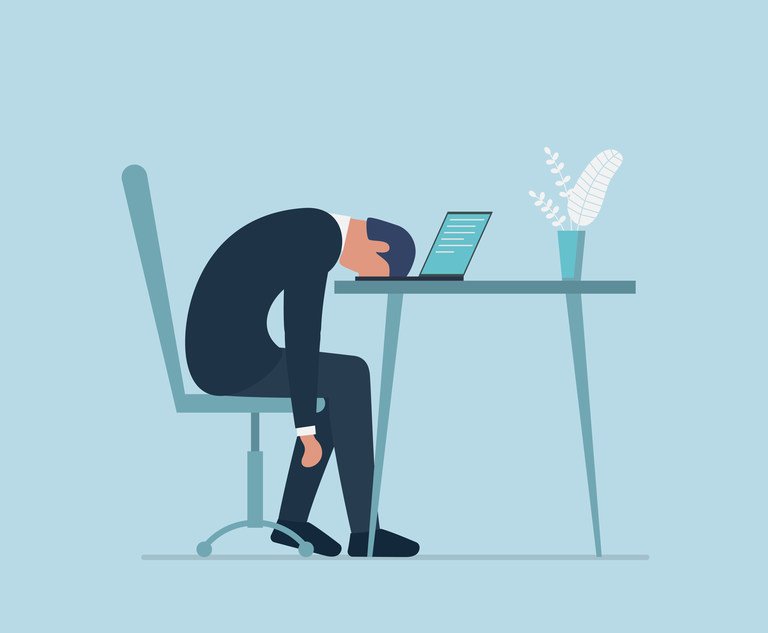E-Discovery's Mental Health Challenges Are Often Silent, But All Too Present
While the suffering may be silent, industry observers note mental health challenges such as stress and burnout are very common.

E-discovery attorneys and professionals are shouldering high levels of stress triggered by heavy workloads. To be sure, mental health challenges are pervasive across the legal industry. However, observers noted the e-discovery sector’s tight deadlines, long hours and generally nonexistent wellness opportunities, among other factors, are key differentiators that can make e-discovery a commonly stressful environment.
While the pandemic and remote working might appear to be the main culprit fueling e-discovery professionals’ stress and burnout, observers said mental health challenges existed well before COVID-19.
“I feel like there were mental health issues around, ‘People don’t care about what I do [in e-discovery],’” said Jared Coseglia, founder and CEO of privacy, e-discovery and cybersecurity staffing agency TRU Staffing Partners Inc. “[Now, what] I hear more from the community is, ‘We are understaffed, please help me. I cannot get enough people to support what we have and that’s causing strain on me.’”
While there is a competitive job market, such understaffing has been a common feature of the industry, said Gunster partner and e-discovery attorney Christine Payne
“Often the budget structures in e-discovery create a situation where too few people are carrying too heavy a load and we’ve always just accepted it as part of the job,” Payne wrote in an email. “This is happening at all levels and in all areas of the community—vendors, outside counsel firms, and among in-house groups tasked with e-discovery.” Payne is part of a cross-functional group working on initiatives to address the e-discovery industry’s mental health issues.
To be sure, the nature of e-discovery has always been stressful, noted EDRM CEO and chief legal technologist Mary Mack.
“Pre-pandemic the legal tech industry is sort of like the legal part of a second request, with really tight deadlines and changeable requirements, so you would oftentimes find e-discovery people working really early hours and really late hours,” Mack said. “That’s not so different from regular legal that has global clients, but [it's] the intensity of it all where you have to work with multiple organizations and multiple people [and], depending on the situation, they have multiple bosses.”
The stressors felt by e-discovery professionals can also vary by role, Mack added.
“The review attorneys don’t have as much control over the work and that would be stressful. And the lawyers or managers managing the big teams are dealing with budgets and multiple personalities,” Mack said. “It’s a highly visible, high-stress job for the providers as well,” she added.
While the stress is evident across the e-discovery market, few e-discovery software and service companies have added wellness resources to their corporate structure, said Major, Lindsey & Africa transform advisory services managing director Mark Yacano.
“Those companies don’t have the business structure around wellness and health, [and] especially if they are not public, they haven’t built out their corporate infrastructure,” he said.
However, e-discovery provider Relativity has invested in employee wellness, and Relativity wellness and senior HR program manager Cherry Mangat noted a few steps companies can take to mitigate the industry’s mental health risks.
First, providers can normalize mental health discussions in the workspace by executives talking about their challenges, Mangat said. In addition, companies can offer multiple mental health programs to their employees and provide “compassionate leadership” training to managers, she noted.
“We have offered compassionate [management] training for talking about their personal life, how to make that a safe space and reminding [employees] of the resources available to them,” Mangat said.


